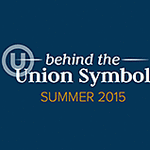Spot of Tea, Anyone? Tea and the OU Kosher Ingredient Approval Process
Tea is the most widely consumed beverage in the world, and is found in approximately 80 percent of U.S. households. It is commonly served hot or iced, anytime, anywhere, for any occasion. On any given day, over 158 million Americans are drinking tea.
In 2014, Americans consumed over 3.6 billion gallons of tea. About 84 percent of all tea consumed was black tea, 15 percent was green tea, and the small remaining amount was oolong, white and dark tea. The United States is the second largest importer of tea after Russia. China, Kenya, India and Sri Lanka are the largest suppliers of tea to the United States.
Tea leaf is harvested from the leaves of the Camellia sinensis plant. The leaf undergoes a four step process: withering, rolling, fermentation and firing.
Withering– The freshly plucked green tea leaves are stored until the moisture content is reduced.
Rolling– The withered leaves are crushed by rolling or maceration in order to break down the leaf cell structure and bring the internal natural enzymes and the substrate polyphenols into contact.
Fermentation– The leaves turn darker as their chlorophyll breaks down and tannins are released.
Firing– When the leaves reach their desired ‘color’, they are ‘fired up’ (dried) to deactivate the enzymes responsible for the oxidation. In the production of black teas, the oxidation is stopped after a period of natural drying. In the production of green tea, the oxidation is halted soon after picking. The tea leaf is fired with hot, dry air reducing the moisture content of the leaves to less than five percent. One chosen piece of equipment for large companies is the Fluid Bed Dryer. This may be followed by a Spouted Bed Dryer.
Although the tea leaf is processed, it is not difficult to certify regular tea leaf as kosher since the processes and equipment used are generally only used for the tea leaf production. There is no concern of cross contamination with non-kosher ingredients or equipment shared with non-kosher product.
The same applies to decaffeinated tea bags. Of the processes used to decaffeinate tea leaf, the direct method utilizes dichloromethane or ethyl acetate and the CO2 method utilizes supercritical carbon dioxide. All are kosher agents and both processes utilize only designated equipment. Therefore, decaffeinated tea leaf also can be awarded kosher certification.
Although a much more complex process, instant tea powder can also be certified. Even though the process includes spray drying, OU ingredient specialists have determined that industry-wide, the spray dryers used for instant tea are not used for non-kosher compatible product. The enzymes or maltodextrin that may be added by the larger producers generally do not have any kosher compatibility concerns and therefore instant tea powder is easily certified.
Cold Brew leaf is regular tea leaf that may be processed with cell wall digestive enzymes to enable release of the tea essence without heat. There are non-kosher enzymes that can be used for this. Kosher certification agencies, including, of course the OU, monitor the enzymes and procedures that a company uses to produce the cold brew leaf.
Herbal tea is more complex from a kosher point of view. It is often not made from the leaves of a tea plant, rather from a variety of herbs, peels, fruit and flavoring. The processes of those herbs or fruits includes chopping, flavoring, followed by steaming to stop the microbial process. The equipment, flavors and heat sources need to be monitored for kosher integrity.
The OU certifies many large and small tea companies; each company has unique processes. As technology advances, the processes and agents are forever changing. The OU constantly watches for new technologies to verify that they adhere to its high standards of kosher certification.
RABBI AKIVA TENDLER SERVES AS OU KOSHER RABBINIC COORDINATOR SERVING THE OIL, TEA AND BEVERAGE INDUSTRIES. HIS ARTICLE “INGREDIENTS: PROTECT YOUR COMPANY!” APPEARED IN THE SPRING 2015 ISSUE OF BTUS.


